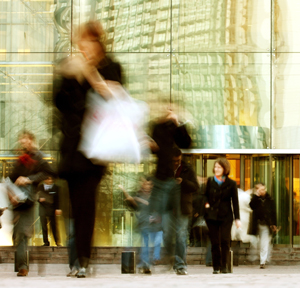Market Research
Singaporeans Hold "Unrealistic" View Of Retirement - Manulife Survey

The latest Manulife Investor Sentiment Index shows that Singaporeans have unrealistically high and positive expectations of retirement and life after it.
Singaporean investors have an "unrealistic" view of retirement, with most seeing it as a time for leisure and to work on a job that will help top up savings, the latest Manulife Investor Sentiment Survey Index shows.
In the study, Singaporeans anticipate retiring early at the age of 61, before embarking on a longer period of post-retirement work that is lengthier than that of their peers elsewhere in the region. The findings also show that there are three retirement misjudgments, including the actual duration of retirement, the day-to-day expenditure while retired and the ability to work during this period.
While the findings might be different for high net worth and ultra high net worth individuals, they point to a broad issue in terms of a gap between what people expect to have in retirement, and reality - at least according to the financial estimates.
"Given the rising cost of living in Singapore and the fact that people here are living together, the amount saved for retirement may seem fine now, but simply won't work in say 10 years' time. To delay or to not bother planning appropriately is a high-stakes option, and one that Singaporeans should avoid if they don't want to feel like workhorses in their golden years," said Annette King, president and chief executive of Manulife Singapore.
The anticipated retirement, including the nine years to work, to last 19 years, suggests a life expectancy of 80 years. In reality, the average Singaporean lives to 84 years old and, with that figure being an average, about half will live considerably longer, said the study. This means that Singaporean investors will likely not have enough to see them through, with retirement expenditures expected to be at least 65 per cent of their current income.
Around 71 per cent expect to work in retirement, in contrast to a much lower actual participation rate of about 40 per cent for 65 to 69 year olds, and less than 15 per cent for those aged above 70. According to Manulife, it's an approach that buys into the myth that the right type of work will be available come retirement. Singapore investors hold on average 33 months of personal income in cash, well above the regional average of 21 months. Of that cash, just one-fifth is set aside for day-to-day and unexpected expenses, leaving the remainder under-utilised and losing value.
Thus, the effective wealth deployment of current wealth is key.
"We see attractive investment opportunities among Singapore bonds... We are also particularly positive on Asian corporate debt in the lower investment grade and strong non-investment grade categories. These securities are expected to deliver a recurring income stream and generally carry lower interest rates risk than higher-rated and sovereign bonds," said Jill Smith, senior managing director and chief investment officer with Manulife Asset Management (Singapore).
The Manulife ISI is based on 500 online interviews in each market of Hong Kong, Mainland China, Taiwan, Japan and Singapore. In Malaysia, Indonesia and the Philippines, it was conducted face-to-face. Respondents are middle class to affluent investors who are primary decision makers of financial matters.
